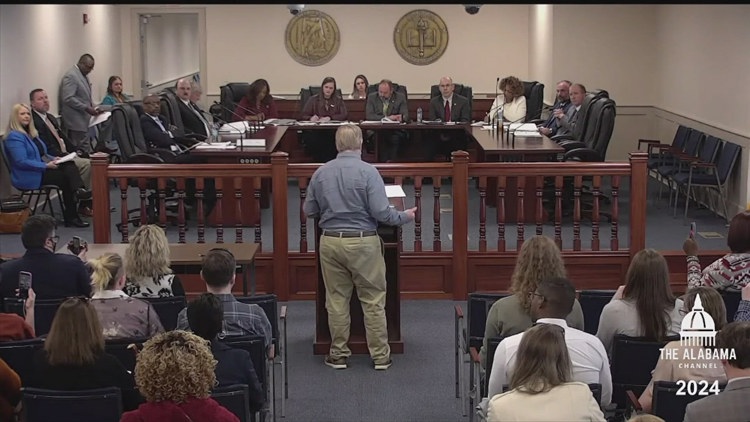MONTGOMERY, Ala. — An Alabama Senate committee on Tuesday delayed action on a proposed revamp of the state ethics law after opposition from both the state attorney general and the head of the state ethics commission.
The Senate Judiciary will take up the bill again Wednesday morning. If approved, it would be in line for a possible Senate vote on the final day of the legislative session, which could be as soon as Thursday.
The attorney general's office and the director of the Alabama Ethics Commission spoke against the bill during a Tuesday public hearing.
Katherine Robertson, chief counsel for the Alabama attorney general, argued that there is overlap in the bill between what is a criminal offense and what is a civil violation. She urged lawmakers to keep working on it.
“There is really no clear line,” Robertson said.
Matt Hart, a former state and federal prosecutor who spearheaded some of the state’s most notable public corruption prosecutions, said the proposal would weaken the state's ethics law by allowing some actions that are currently prohibited.
“There are many, many things that are crimes in our ethics law right now that simply go away,” Hart told the committee.
Speaking after the meeting, Hart said the bill would weaken or abolish parts of the current law aimed at preventing conflicts of interest or requiring the disclosure of contracts.
The Alabama House of Representatives approved the bill a month ago on a lopsided 79-9 vote, but it has been stalled since in the Alabama Senate.
“The goal behind it is clarity and to end the confusion,” Republican Rep. Matt Simpson, the bill sponsor, told the committee.
The bill would raise the limit of gifts to public officials and employees to $100 per occasion and $500 per year. Current law prohibits public officials and employees from receiving a “thing of value” from a lobbyist or person who employs a lobbyist, but allows exemptions for items of minimal value, now defined as less than $33.



